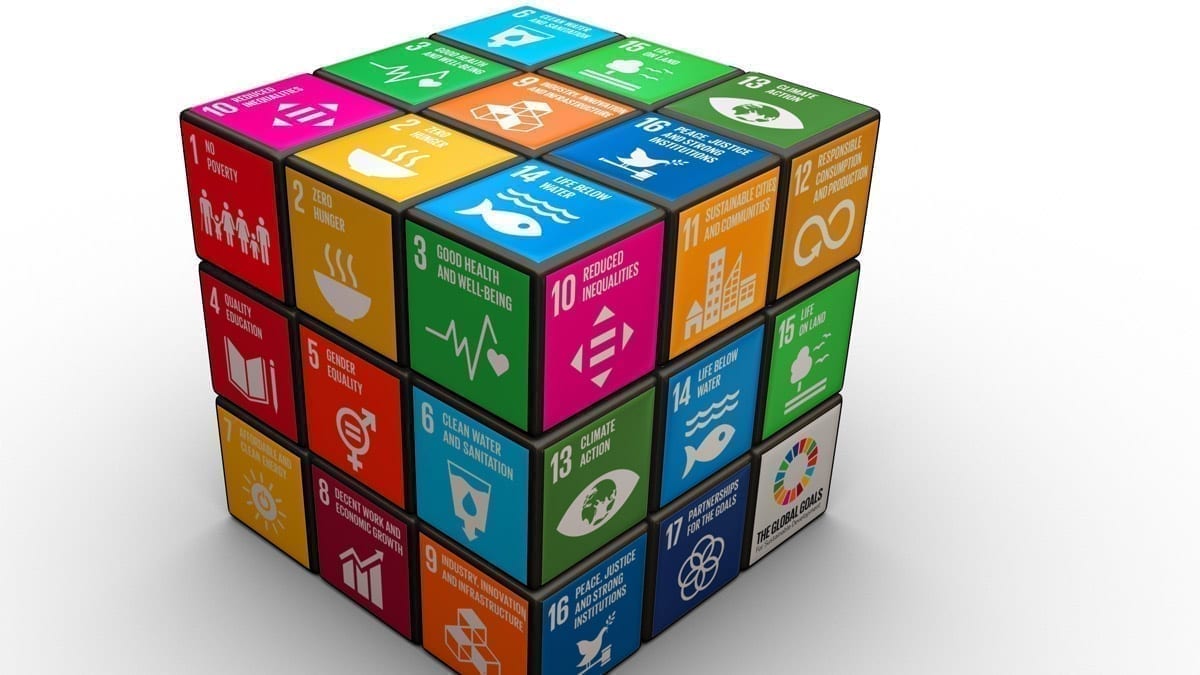
When the oil and gas industry says that we’re part of the solution to the global need to transition to lower carbon energy sources, we mean it, and we evidence it with our actions. However, many people automatically dismiss anything coming from our industry, or label it “greenwashing”.
Others have bigger concerns on their mind. According to a recent study, poverty alleviation, improving healthcare systems, and closing the economic and social divide are just some of the issues that people believe need urgent action. And these are all issues that don’t have much to do with oil and gas, right? Well, I disagree.
Let’s have a look at the Sustainable Development Goals: In 2015, all 193 United Nations member states adopted the “2030 Agenda for Sustainable Development”, that provides “a shared blueprint for peace and prosperity for people and the planet, now and into the future”. The core element of this agenda is a set of 17 Sustainable Development Goals – the ‘SDGs’. All member states committed to mobilize efforts to end all forms of poverty, fight inequalities and tackle climate change, while ensuring that no one is left behind. Again, what does that have to do with the oil and gas industry?
The SDG with the most obvious link to our industry is Goal 7, “Affordable and clean energy”. While continued innovation will help to reduce energy demand in developed countries, energy use in developing countries will increase along with population growth and improving living standards: Five people enter the middle class every second – with the associated middle class energy expectations. The oil and gas industry will continue to play a major role in meeting this demand, while helping to mitigate global greenhouse gas emissions by enhanced improvements in our own operations, developing low carbon technologies and supporting the coal-to-gas switch which is a vital and rudimentary step on the energy transitions journey of developing countries.
But what about the other 16 SDGs? Access to affordable, reliable, and sustainable energy is an enabler for achieving most of the SDGs, but the oil and gas industry also contributes to the other SDGs in many other ways. Let’s have a look at some of the less obvious ones:
Goal 2: “Zero hunger”. According to the UN, about one quarter of the global population is facing moderate or even severe food insecurity, with pandemic-related issues presenting an additional threat to food supplies and distribution. So, how exactly does the oil and gas industry contribute to guaranteeing food security for all?
Besides supplying energy for all stages of food production, hydrocarbons are raw materials for synthetic fertilizers, which are vital for increased crop yields and improved food security for a growing global population. Packaging, often hydrocarbon-based, is another example of the industry’s contribution to food security as it is essential prolonging the shelf-life of perishable food. The current pandemic has clearly shown the importance of packaging for fresh food deliveries, even in regions where food supply is not typically a concern. These are not the only ways in which the industry contributes to fighting hunger, but let’s move on to another SDG.
Goal 3: “Good health and well-being”: Critics argue that oil and gas operations lead to more, not less, health risks. The truth is that industrial activities come with risks which need to be addressed accordingly. Proper health impact assessments, reducing occupational risks, mitigation of air emissions, and other management of the risks created by operations are essential in responsible energy production. IPIECA’s SDG Atlas as well as their soon to be launched “SDG Roadmap for the oil and gas sector” provide, among others, some very useful insights into how the industry advances this particular Goal.
But the oil and gas industry’s contributions go further than managing the direct impacts of our operations. Much of the medical equipment used today, many of which are life-saving devices, is made from hydrocarbons: heart valves, artificial limbs, many pharmaceuticals, syringes – a huge amount of the tools doctors need to do their jobs have hydrocarbon products in them. Some of the most critical items to fight the coronavirus, such as hand sanitizers, masks, and face shields, are made from oil. Taking care of the health and well-being of the people working for us and the communities where we operate is part of our DNA.
That’s why it is not surprising – but still impressive – to see how quickly and efficiently IOGP’s Member Companies have been supporting healthcare systems around the globe with donations, the production of hand sanitizers, or providing free fuel for health workers.

The joint IOGP-IPIECA Health Committee immediately started working on the response to the impacts of the pandemic and has developed well received guidance on transport of infected personnel, screening, vaccination, working routines and more. Earlier this month, the Committee published a new guidance document, “Pandemic management in the oil and gas industry”, which provides guidance on pandemic response management from preparatory actions to control and recovery measures. The Health Committee will also publish a well-being framework later this year, incorporating well-being priorities outlined by the World Health Organization.
Let’s pick another goal: Goal 14: “Life below water”.
One of the top priorities for our world is reduction of greenhouse gas emissions and decarbonisation. The oceans are the biggest carbon sink on our planet, and between 1994 and 2007, these bodies of water absorbed 34 gigatonnes of carbon dioxide, or 31 percent of what humans put into the atmosphere during that time. Oceans are also our planet’s largest ecosystem, nurturing vast biodiversity and providing resources for the livelihood of billions of people. There is a clear link between the integrity of marine ecosystems and human wellbeing. Overfishing and plastic pollution are just some of the threats to our oceans. More than five trillion pieces of plastic pollution are afloat in the oceans injuring and killing fish, seabirds and marine mammals.
And to address the elephant in the room: yes, without any doubt, oil and gas operations have impacted oceans more than once. None of us will ever forget the Deepwater Horizon and other incidents. The industry has made step changes in improving well control and oil spill response capability, and IOGP has been playing a critical role in driving good practices.
But, when I say that we are contributing to SDG 14, I don’t mean that we’re just trying not to make things worse. One of the targets of SDG 14 is to increase scientific knowledge, research and technology for ocean health. The oil and gas industry is doing considerable work towards this target, work that many people are unaware of and are often surprised by when they learn. The industry has access to comprehensive and accurate ocean data that helps to assess and understand the health of ocean ecosystems, including, among others, possible impacts of sound on marine fauna. IOGP and its Members are engaged in a variety of initiatives to support ocean science as a force for good in this area. Just to give you a couple of examples: In 2019, the IOGP Environmental Genomics Joint Industry Programme (eDNA JIP) was launched to coordinate research aimed at exploring the application of eDNA-based analyses in environmental assessments and monitoring of oil and gas offshore and onshore operations. Environmental DNA can be used to detect organisms and estimate biodiversity and it improves the industry’s ability to undertake biological assessments with increasing accuracy and efficiency while minimizing impact to the local habitats we operate in.
Ocean Governance – there are many collaborations and partnerships between industry and science – sound science is the basis of our risk management approaches, and as responsible ocean stakeholders, we actively contribute to the knowledge of ocean health and bring the industry perspective to public policy, building and maintaining strong relationships with governance organisations and engaging with stakeholders to develop future ocean governance.
The oil and gas industry contributes to the SDGs, most of them directly and all indirectly. This includes Goal 13 (Climate Action), which I will talk about in a separate post as there is so much to say about our industry’s role in this incredibly important area.
So let me conclude by simply saying: we are part of the solution.
Looking forward to hearing from you.